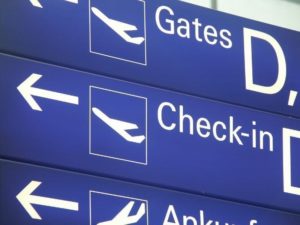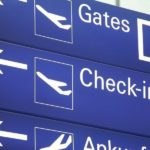
The Port of Seattle Commission decided in a vote on Tuesday to go ahead with the purchase and installation of facial recognition cameras at Seattle-Tacoma International Airport’s international departure gates.
Staff at the Commission say the decision to proceed — despite the protest of civil liberties groups — was based on the fact that national security agencies like Customs and Border Protection (CBP) have the authority to bypass the Port and implement biometric technology themselves if they choose to do so.
“The choice is not whether to execute biometric air exit,” commissioner Sam Cho said. “The choice is whether we as a port want to take this on, or whether we want to allocate this to CBP (Customs and Border Protection) and the airlines.”
In December, the Port Commission declared a moratorium on the introduction of any new biometric tech as it drafted new regulations to govern their use.
Following that decision, in late January the CBP expanded on what it called a “demonstration” of biometric technology at Seattle-Tacoma from one airline to four.
By proceeding with biometric screening on their own, commissioners say they will be able to better ensure the safety of travelers’ civil liberties. Ways they intend to do this include making sure the cameras capture only one person at a time; installing easy-to-understand advisories; and setting up the program so passengers have to opt into it, rather than opt out as is usually the case with biometric travel screening.
Civil liberties groups critical of the Commission’s decision are calling it “a mockery of the purported policy development process,” referring in part to a December meeting where seven principles governing biometric technologies were approved by commissioners.
In that meeting, commissioners indicated that the decision to allow any biometric technology at Seattle-Tacoma was still up for discussion, and though commissioners placed a four-month moratorium on its rollout, that only applied to Port staff and airlines, and not federal agencies like CBP.
CBP has been mandated by Congress to develop a national biometric entry and exit process, and according to a Port policy memo, has the authority to bypass an airport that chooses not to partner with them.
Source: Seattle Times
–
March 12, 2020 – by Tony Bitzionis






Follow Us